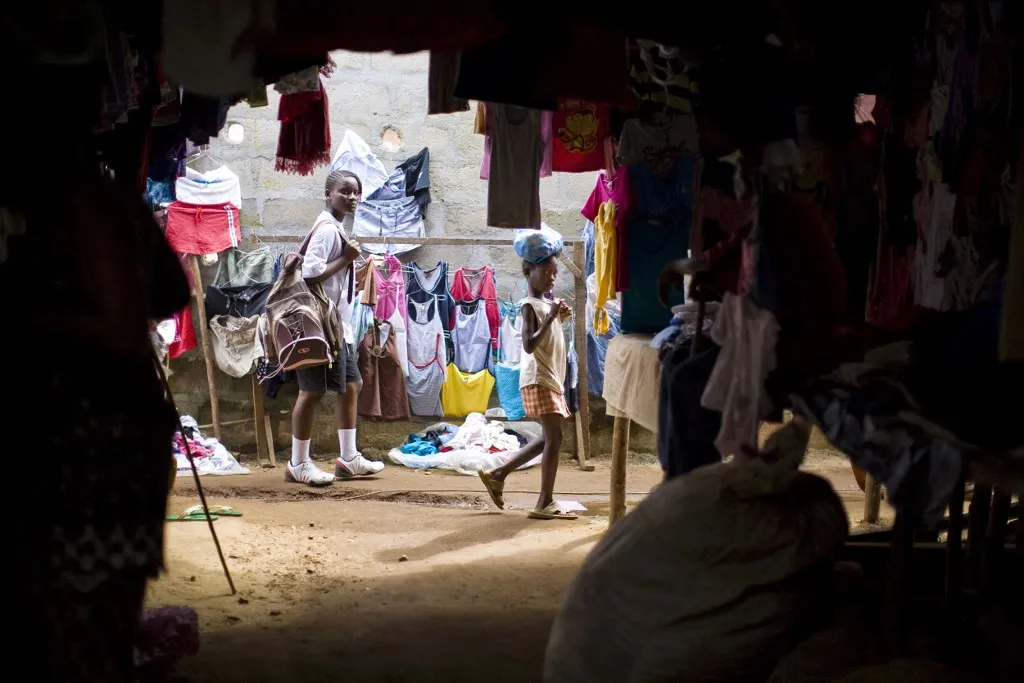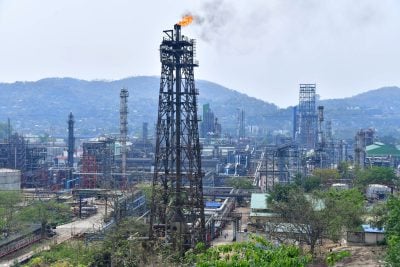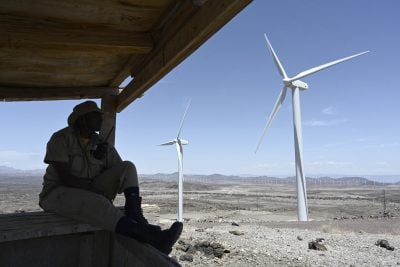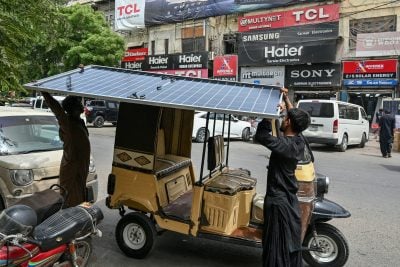At the beginning of the year, the state-owned Liberia Electricity Corporation (LEC) announced load shedding – a series of planned supply interruptions – for the first months of 2022 as a result of a reduction in electricity generation.
As a result, many Liberian businesses have had to deal with a reduction in their electricity supply, a state of affairs which the Liberia Electricity Regulatory Commission (LERC) described as “unacceptable” in a statement issued in February. The commissioners criticised the company and called on it to implement immediate remedies to end the “electricity generation nightmare”.
According to the LEC, the load shedding came as a result of the dry season which saw a decrease in water levels at Mount Coffee Hydro Power Plant, the main source of electricity in the country.
However, the LERC commissioners stated that they had “on numerous occasions, expressed concerns about the seasonal variations impacting Mount Coffee power generation capacity especially during the Dry Season” and that LEC had assured them that fuel stock would be available.
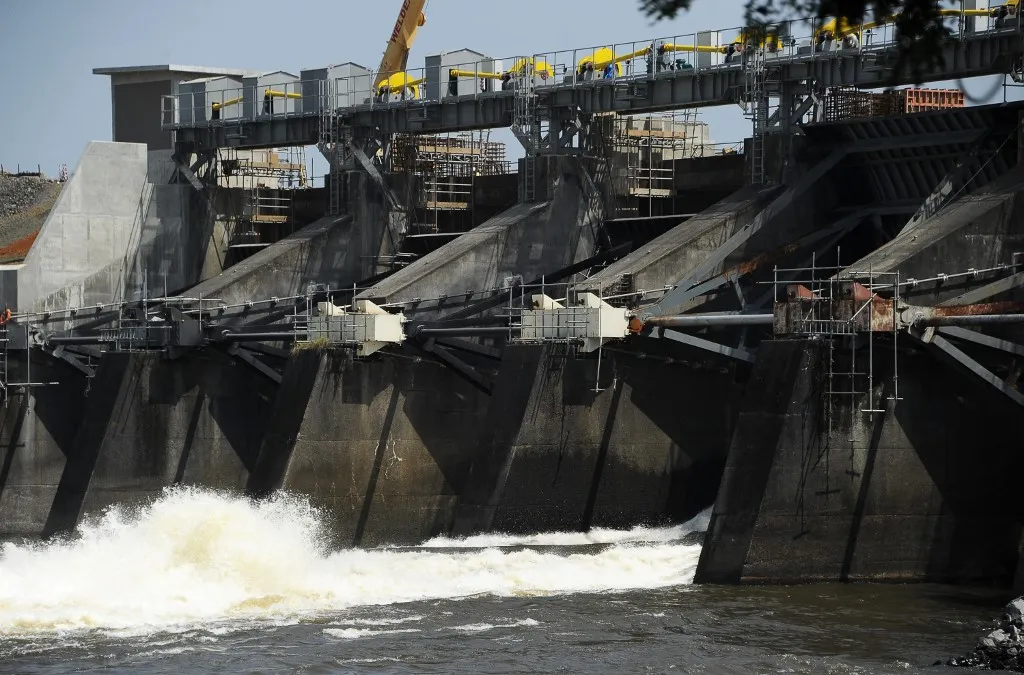
Load shedding impacts on Liberian businesses
The impact on Liberian businesses has been devastating.
Fatu, who runs a water packaging business in Monrovia, says that the reduction in electricity means less hours of work at the firm.
“The issue with the [electricity] current is making business hard. We used to work from 8am till late, sealing the water in plastic sacks. We can’t use the generator the whole day – we start at 11am and we have to shut down production by 4pm,” she says.
To make matters worse, in March, citing the impact of the war in Ukraine, the government increased the price of petrol by $1.16 to a wholesale selling price of $5.48 per gallon and a retail price of $5.66 per gallon.
The fuel price increase is adding to the costs of running generators when the electricity supply is turned off. Roland Washington, who operates an art and design production house, says that the situation is a leading to a spike in production costs.
“Depending on our workload we burn on average 10-12 gallons of gas per day. So many businesses are suffering because there is no electricity. We need to meet production goals, so we have to buy gallons of fuel,” he says.
Increased prices to offset the high cost of fuel are fuelling inflation. The IMF predicts that inflation in consumer prices will increase by 8.2% in 2022 compared to 7.8% in 2021.
Chronic problems with power supply in Liberia
Liberia’s electricity woes are not new. During the civil wars that ended in 2003, Liberian electricity infrastructure was mostly destroyed. After the war, only about 10% of urban residents and less than 2% of rural Liberians had electricity access, which was largely produced by costly and inefficient private generators.
In 2016 the Mount Coffee Hydro dam – the country’s major source of electricity – was refurbished and came back online with a government aim to increase access to electricity. But despite electricity access growing year-on-year, overall generation remains low. According to data from the World Bank, only 27.5% of Liberia’s approximately 4m population had access to electricity in 2020.
Lack of investment and power theft exacerbate Liberia’s power problems
Thus far, the LERC has blamed LEC for the reduction in power supply.
In its February press release, it stated: “The load shedding being carried out by the LEC as observed is in violation of the minimum service levels in Schedule Two (2) of the Customer Service and Quality of Supply Regulations (CSQOSR), which ensures that duration of outages cannot exceed eight hours and therefore the commission directs LEC to take urgent steps to curtail these (sic) load shedding.”
In a Senate hearing, Monie Captan, head of the LEC board, argued that the state-owned institution’s operations have suffered from the lack of sufficient investment from the government and a lack of logistics infrastructure. He called for the company’s shareholder base to be diversified.
“If we have more shareholders, there will be more investments done in the company,” he said.
But supply problems are also exacerbated by power theft via illegal connections, depriving the LEC of much-needed revenue and overloading and damaging distribution equipment. The failures have attracted international comment. Speaking in April, US ambassador to Liberia Michael McCarthy said that major efforts are needed to end power theft.
“If power is not taken seriously and if some important decision about infrastructure is not made, I do not understand how LEC will continue to operate. Who are you going to attract into this country if you don’t have dependable, reliable electricity? I do not know.
“Unfortunately, I think the country needs to redouble its effort and take power theft very seriously. People have to turn the corner – people need to turn the corner on power theft and that has not happened yet”.
Debt problems threaten Liberia’s power supply from regional partners
To improve access to electricity, Liberia is part of the $500m CLSG Interconnector project with neighbouring states. The project, which includes Côte d’Ivoire, Liberia, Sierra Leone, and Guinea, involves the construction of a 1,350km transmission line allowing power exports from Côte d’Ivoire to Liberia, Sierra Leone, and Guinea. Liberia is also a member of the West African Power Pool, which coordinates supplies between 14 member states.
However, in January it was reported that Liberia owed $9m to Côte d’Ivoire for power delivered, putting future shipments in jeopardy unless the debt is cleared.
During his Senate hearing in March, Jacques Philip, chief financial officer of LEC said: “That is a significant amount of money that LEC doesn’t have, and also requires a security deposit for three-month supply, and that is a significant amount that the LEC doesn’t have. The unit price that they want to charge Liberia is significantly higher than it is viable.”
LEC ‘in grave financial situation for the last decade’
In September 2021, the US Millenium Challenge Corporation reported on its $257m Liberia Compact, which aimed to increase electricity access between 2016 and 2021.
The organisation reported that while rehabilitation at the Mount Coffee hydro plant had taken place, “ongoing operations and maintenance is underfunded, increasing the risk of turbine or plant failure, additional rehabilitation costs, and potential emergency situations”.
The MCC added that the LEC “has been in a grave financial situation for the last decade…. LEC requires funding for operations and capital expenses, and a systematic response to theft and corruption to ensure functionality and sustainability currently and post-Compact in 2021.”
Multilateral institutions are also playing their part. In 2021, the World Bank launched the Liberia Electricity Sector Strengthening and Access Project, with a goal to provide sustainable, reliable, and affordable electricity to 632,500 Liberians.
The project will rehabilitate and expand electricity infrastructure and target two key areas – grid electrification in the greater Monrovia area and provide for a sustainable business model for scaling up renewable energy based mini-grids and stand-alone solar systems in remote areas.
Significant reform is needed
When contacted by African Business, the LEC noted that load shedding has ended with the coming of the rainy season, and stated that “there are plans underway to resolve the issue of load shedding as there are measures underway to improve service and electricity generation during the dry season.”
But without significant reform at the national power company, prompt payment to neighbouring countries and government intervention to properly fund the LEC or expand its shareholder base, Liberia’s generation woes are likely to continue.
“They need to fix the current. The country is hard, we depend on our businesses to survive. If they don’t give us current and our business suffers, how will we survive?” asks Fatu.
Want to continue reading? Subscribe today.
You've read all your free articles for this month! Subscribe now to enjoy full access to our content.
Digital Monthly
£8.00 / month
Receive full unlimited access to our articles, opinions, podcasts and more.
Digital Yearly
£70.00 / year
Our best value offer - save £26 and gain access to all of our digital content for an entire year!

 Sign in with Google
Sign in with Google 